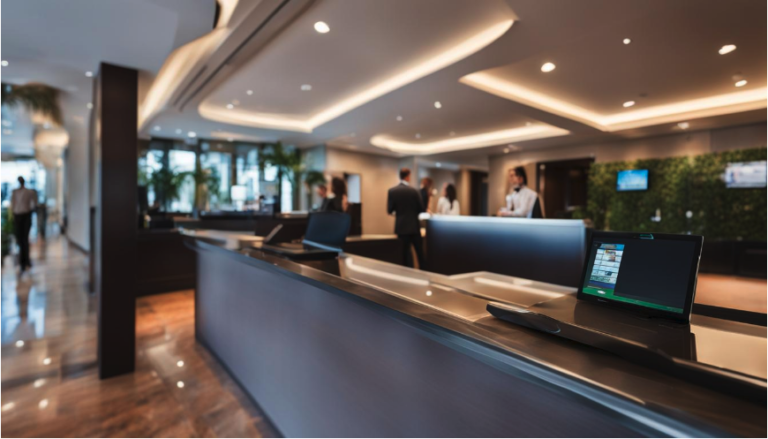Strategies for Effective Time Management in Hospitality
In the fast-paced world of hospitality, effective time management is crucial for ensuring smooth operations and providing exceptional guest experiences.
With a multitude of tasks and responsibilities vying for attention, it becomes imperative for hospitality professionals to employ strategic approaches to manage their time efficiently.
From prioritizing tasks and utilizing technology to delegating effectively and managing interruptions, there are several key strategies that can significantly impact productivity and overall success in the industry.
However, the challenge lies in identifying and implementing the most effective time management practices that align with the unique demands of the hospitality sector.
Key Takeaways
- Time blocking and task categorization can help prioritize tasks and make informed decisions.
- Utilizing technology such as integrated management systems, mobile applications, data analytics tools, automation, and online booking platforms can improve efficiency and enhance the guest experience.
- Delegating tasks effectively by empowering employees, providing clear communication of expectations, fostering a culture of ownership, and offering regular check-ins and feedback can distribute workload efficiently and enable professional growth.
- Managing interruptions by prioritizing tasks, establishing boundaries, utilizing time blocks, creating a structured environment, and developing strategies for handling interruptions can minimize their impact on productivity.
Prioritizing Tasks
In the fast-paced environment of the hospitality industry, effective time management hinges on the ability to skillfully prioritize tasks to ensure operational efficiency and guest satisfaction.
One of the most effective strategies for prioritizing tasks is time blocking, which involves dedicating specific blocks of time to focus on particular tasks or categories of tasks. By allocating time for specific activities, such as guest check-ins, staff training, or inventory management, hospitality professionals can ensure that essential tasks are not overlooked amidst the myriad of responsibilities.
Task categorization is another crucial aspect of prioritizing in the hospitality industry. By categorizing tasks based on their urgency and importance, managers can make informed decisions about where to allocate their time and resources. For instance, tasks related to guest experience and safety may take precedence over administrative duties.
Understanding the significance of each task allows for a more strategic approach to time management, ensuring that critical responsibilities are addressed promptly.
Utilizing Technology
With the rapid advancements in technology, the hospitality industry has been presented with unprecedented opportunities to streamline operations and enhance guest experiences. Utilizing technology is essential for improving efficiency and streamlining processes.
Integrated Management Systems:
Implementing integrated management systems can significantly improve efficiency by centralizing operations such as reservations, inventory management, and guest profiles. This streamlines processes by reducing the need for manual data entry and minimizing errors.
Mobile Applications:
Leveraging mobile applications enables staff to access real-time information, communicate effectively, and manage tasks on the go. This not only improves efficiency but also enhances the overall guest experience by providing quick and personalized service.
Data Analytics Tools:
Utilizing data analytics tools allows hospitality businesses to gain valuable insights into guest preferences, operational patterns, and market trends. By leveraging this information, businesses can make informed decisions to optimize processes and tailor experiences, ultimately streamlining operations and enhancing guest satisfaction.
Delegating Effectively
Effectively delegating tasks in the hospitality industry requires a strategic approach that optimizes workflow and maximizes team productivity.
Empowerment and accountability are essential aspects of successful delegation. It is vital to entrust employees with tasks that align with their skills and provide them with the authority to make decisions within their delegated responsibilities.
Clear communication of expectations is crucial to ensure that employees understand the desired outcomes and standards. When delegating, managers should clearly outline the scope of work, deadlines, and any specific guidelines or constraints.
Additionally, fostering a culture of accountability where employees take ownership of their delegated tasks is essential. Regular check-ins and feedback mechanisms can aid in this process, allowing for course correction if necessary.
Furthermore, providing support and resources as needed is integral to effective delegation. By delegating effectively, managers not only distribute workload efficiently but also enable the professional growth and development of their team members, ultimately leading to enhanced overall productivity and success.
Managing Interruptions
Navigating interruptions is a common challenge in the fast-paced environment of the hospitality industry, requiring skillful management to maintain productivity and service quality. In such a dynamic setting, handling distractions and maintaining focus are essential to ensure smooth operations.
Here are some practical strategies to effectively manage interruptions:
- Prioritize Tasks: When interruptions occur, it's crucial to assess the urgency and importance of the interrupted task. By prioritizing tasks, hospitality professionals can better determine whether to address the interruption immediately or defer it to a more appropriate time.
- Establish Boundaries: Setting boundaries and communicating them to colleagues can help minimize unnecessary interruptions. Whether it's designating specific times for meetings or clearly outlining when one should not be disturbed, creating a structured environment can reduce disruptions.
- Utilize Time Blocks: Allocating specific time blocks for focused work can help mitigate the impact of interruptions. By scheduling uninterrupted periods, individuals can maximize their productivity and concentrate on essential tasks without being derailed by frequent distractions.
Setting Boundaries
In the fast-paced world of hospitality, establishing clear boundaries is essential to minimize unnecessary interruptions and maintain a focused, productive work environment. Setting limits is imperative for maintaining a healthy work-life balance, especially in an industry known for its demanding schedules and high-stress environments. It is essential for hospitality professionals to communicate their boundaries effectively and assertively, whether it pertains to work hours, off-duty availability, or workload capacity.
To achieve an effective work-life balance, it's crucial to set clear expectations with colleagues and superiors regarding personal time and availability. This requires open communication and assertiveness in expressing one's needs. Furthermore, setting boundaries around work hours and break times can help prevent burnout and improve overall well-being. By clearly defining when interruptions are acceptable and when they are not, hospitality professionals can increase their productivity and focus during designated work hours.
Conclusion
In conclusion, effective time management in hospitality is crucial for the success of the industry. By prioritizing tasks, utilizing technology, delegating effectively, managing interruptions, and setting boundaries, hospitality professionals can improve productivity and efficiency.
According to a survey conducted by the Hospitality Industry Technology Exposition and Conference (HITEC), 87% of hospitality professionals believe that utilizing technology has significantly improved their time management skills. This highlights the importance of embracing technological solutions in the industry.







